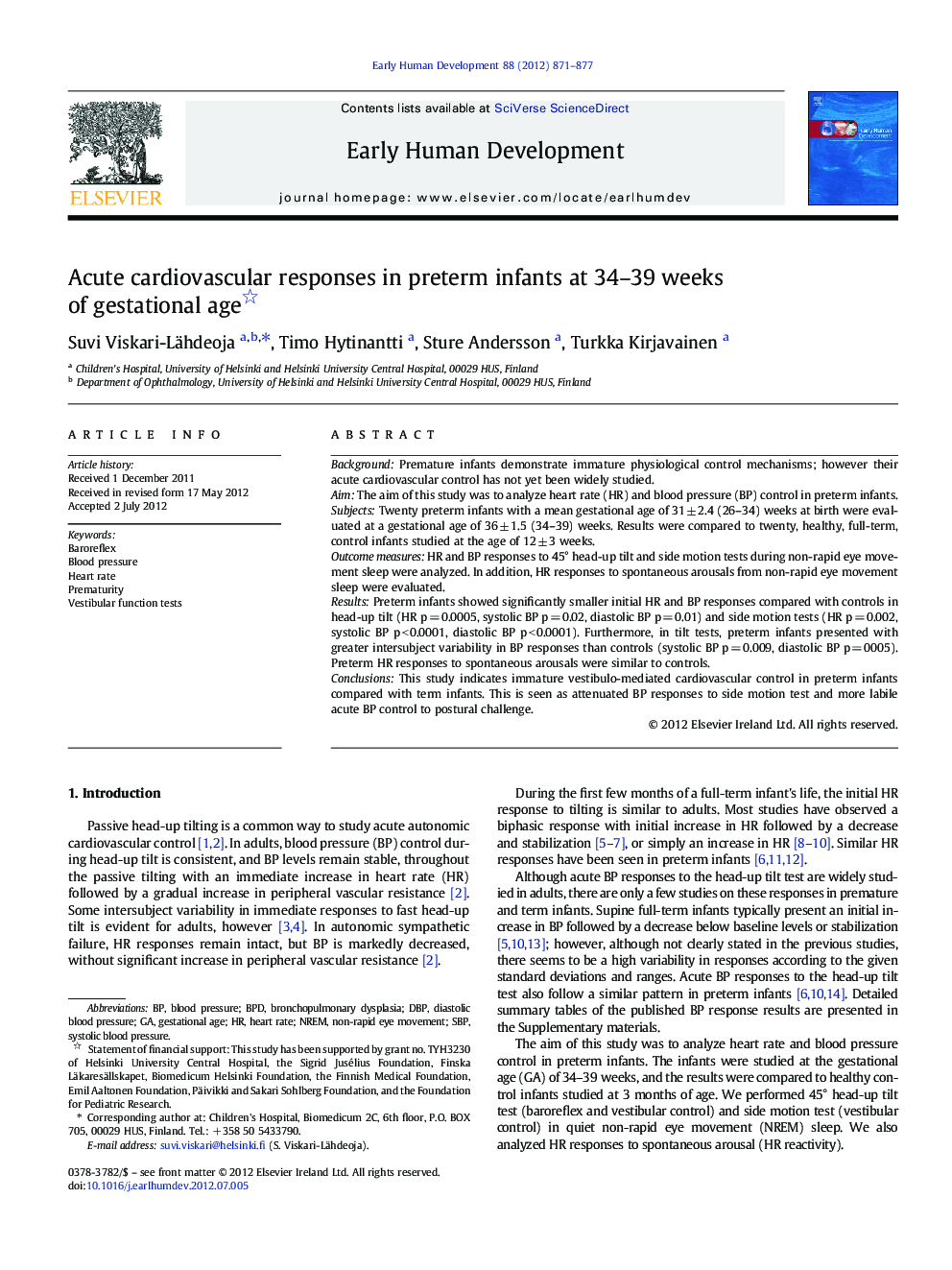| Article ID | Journal | Published Year | Pages | File Type |
|---|---|---|---|---|
| 3918328 | Early Human Development | 2012 | 7 Pages |
BackgroundPremature infants demonstrate immature physiological control mechanisms; however their acute cardiovascular control has not yet been widely studied.AimThe aim of this study was to analyze heart rate (HR) and blood pressure (BP) control in preterm infants.SubjectsTwenty preterm infants with a mean gestational age of 31 ± 2.4 (26–34) weeks at birth were evaluated at a gestational age of 36 ± 1.5 (34–39) weeks. Results were compared to twenty, healthy, full-term, control infants studied at the age of 12 ± 3 weeks.Outcome measuresHR and BP responses to 45° head-up tilt and side motion tests during non-rapid eye movement sleep were analyzed. In addition, HR responses to spontaneous arousals from non-rapid eye movement sleep were evaluated.ResultsPreterm infants showed significantly smaller initial HR and BP responses compared with controls in head-up tilt (HR p = 0.0005, systolic BP p = 0.02, diastolic BP p = 0.01) and side motion tests (HR p = 0.002, systolic BP p < 0.0001, diastolic BP p < 0.0001). Furthermore, in tilt tests, preterm infants presented with greater intersubject variability in BP responses than controls (systolic BP p = 0.009, diastolic BP p = 0005). Preterm HR responses to spontaneous arousals were similar to controls.ConclusionsThis study indicates immature vestibulo-mediated cardiovascular control in preterm infants compared with term infants. This is seen as attenuated BP responses to side motion test and more labile acute BP control to postural challenge.
